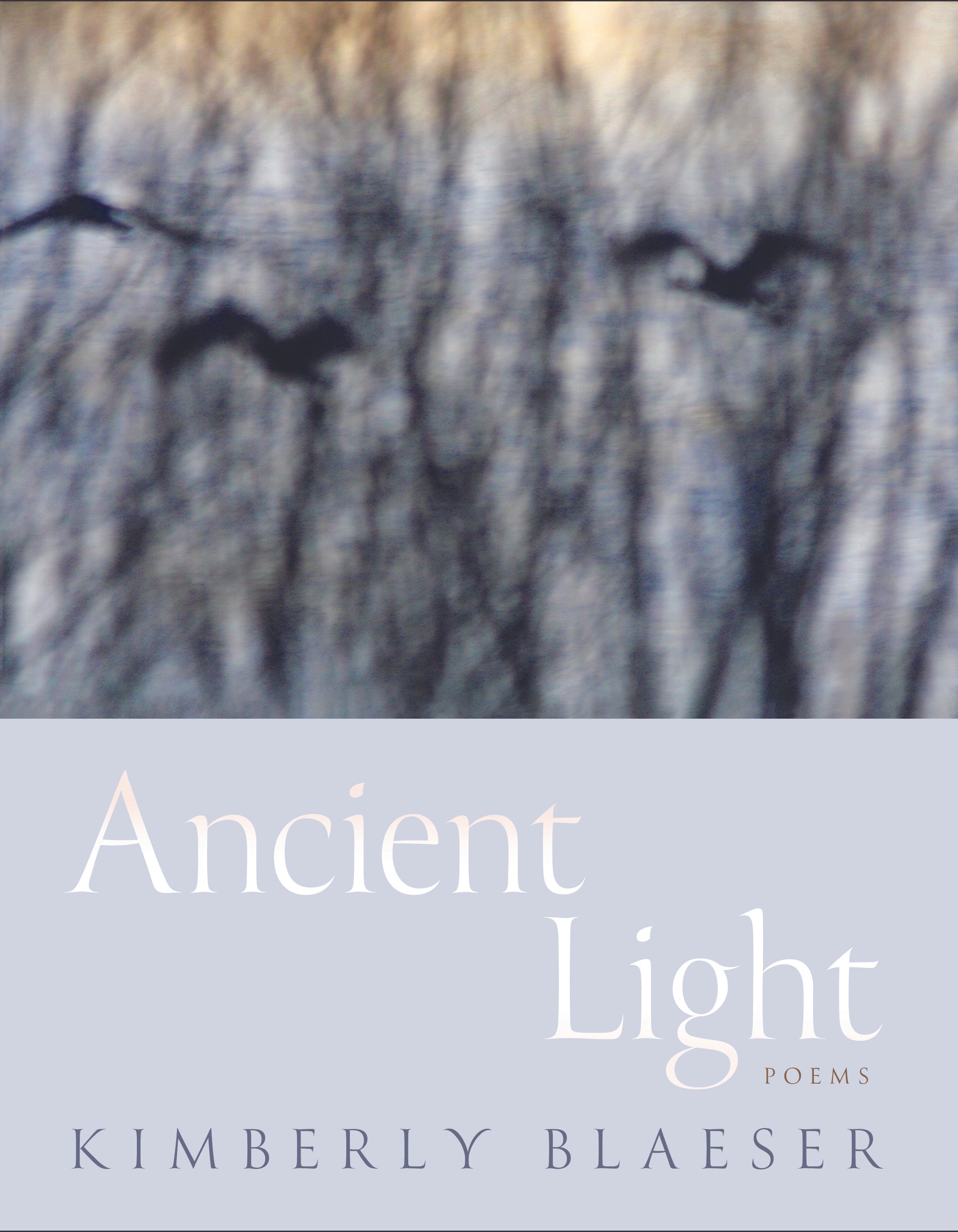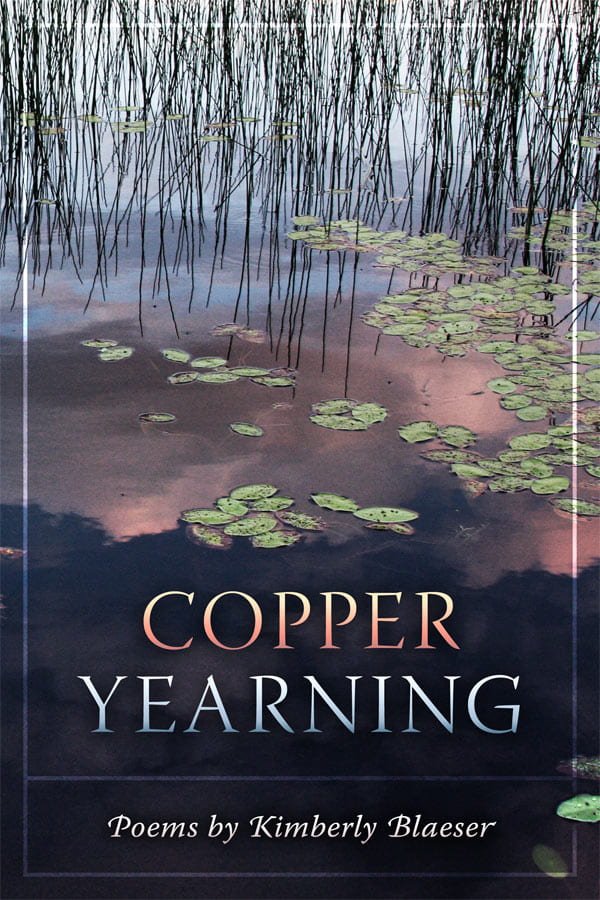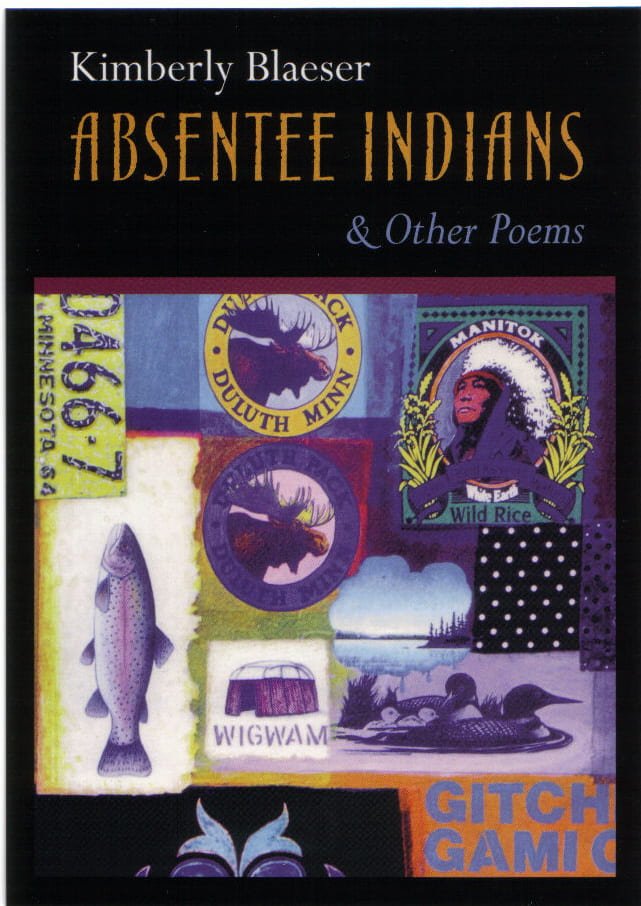
Kimberly Blaeser
Founding Director, Indigenous Nations Poets
Kimberly Blaeser, Ojibwe, past Wisconsin Poet Laureate and founding director of Indigenous Nations Poets, is a poet, photographer, and scholar. She is the author of six poetry collections, most recently Ancient Light (2024), Résister en dansant/Ikwe-niimi: Dancing Resistance (2020), and Copper Yearning (2019). Blaeser edited Traces in Blood, Bone, and Stone: Contemporary Ojibwe Poetry, wrote the monograph Gerald Vizenor: Writing in the Oral Tradition on the work of fellow White Earth writer, and served as contributing editor for When the Light of the World Was Subdued, Our Songs Came Through: A Norton Anthology of Native Nations Poetry (2020). Her poetry is widely anthologized and her photographs, picto-poems, and ekphrastic pieces have appeared in exhibits such as “Visualizing Sovereignty,” and “No More Stolen Sisters.” An Anishinaabe activist and environmentalist, she is an enrolled member of White Earth Nation and grew up on the reservation. The 2024 Mackey Chair in Creative Writing at Beloit College,Blaeser is a Professor Emerita at UW–Milwaukee and an MFA faculty member for Institute of American Indian Arts. She serves on the Poetry Coalition of the Academy of American Poets, and as Vice President of Letters for Wisconsin Academy of Sciences, Arts, and Letters. Her accolades include a Lifetime Achievement Award from Native Writers’ Circle of the Americas. Blaeser splits her time between her home in rural Wisconsin and a water-access cabin adjacent tothe Boundary Waters Canoe Area Wilderness in Minnesota.
Poems for a Tattered Planet
A series of poetic films by Indigenous Nations Poets and Overpass Light Brigade created at our 2023 mentoring retreat in Door County Wisconsin.
Publications
Ancient Light
Genre: Poetry
Publisher: The University of Arizona Press
Publication Date: January 2024
Elegiac and powerful, Ancient Light uses lyric, narrative, and concrete poems to give voice to some of the most pressing ecological and social issues of our time.
With vision and resilience, Kimberly Blaeser’s poetry layers together past, present, and futures. Against a backdrop of pandemic loss and injustice, MMIW (Missing and Murdered Indigenous Women), hidden graves at Native American boarding schools, and destructive environmental practices, Blaeser’s innovative poems trace pathways of kinship, healing, and renewal. They celebrate the solace of natural spaces through sense-laden geo-poetry and picto-poems. With an Anishinaabe sensibility, her words and images invoke an ancient belonging and voice the deep relatedness she experiences in her familiar watery regions of Minnesota.
The collection invites readers to see with a new intimacy the worlds they inhabit. Blaeser brings readers to the brink, immerses them in the darkest regions of the Anthropocene, in the dangerous fallacies of capitalism, and then seeds hope. Ultimately, as the poems enact survivance, they reclaim Indigenous stories and lifeways.
Résister en dansant / Ikwe-niimi: Dancing Resistance
Genre: Poetry
Publisher: Éditions des Lisières
Publication Date: 2020
A stunning new volume from the first Native American Poet Laureate of the United States, informed by her tribal history and connection to the land.
Poetry in French and English, Résister en dansant / Ikwe-niimi: Dancing Resistance situates the reader in complex cultural spaces—in watery Anishinaabe homelands, in sites of historical and contemporary political conflict. As translator Béatrice Machet explains: “To write is not only to produce a literary object, for a Native American author it is to affirm survival (. . .) and to continue to resist in lands where the question of colonialism is still topical. History and resistance, tradition and nature, are the two thematic poles that irrigate the poetry of Kimberly Blaeser, a member of the Anishinaabe nation. Lyrical and narrative, her texts, capture the complexity of the legacies of Native America, immersed for more than five hundred years in a civilization that sought to suppress them physically, culturally and spiritually.”
Copper Yearning
Genre: Poetry
Publisher: Holy Cow! Press
Publication Date: 2019
Copper Yearning invests itself in a compassionate dual vision, bearing witness to the lush beauty of our intricately woven environments and to the historical and contemporary perils that threaten them. Kimberly Blaeser’s fourth collection of poetry deftly reflects her Indigenous perspective and a global awareness. Through vividly rendered images, the poems dwell among watery geographies, alive to each natural nuance, alive also to the uncanny. Set in fishing boats, in dreams, in prisons, in memory, or in far-flung countries like Bahrain, the pieces sing of mythic truths and of the poignant everyday injustices. But, whether resisting threats to effigy mounds or inhabiting the otherness of river otter, ultimately they voice a universal longing for a place of balance, a way of being in the world, for the ineffable.
Apprenticed to Justice
Genre: Poetry
Publisher: Salt Publishing
Publication Date: 2007
Apprenticed to Justice is a collection of vividly rendered lyrical and narrative poems that trace the complex inheritances of Indigenous America, this “strange map drawn of blood and history.” It opens with intriguing glimpses of individuals—a mother “born of dawn / in a reckless moon of miscegenation,” cousins “who rotated authority / on marbles sex and skunk etiquette,” women “planting dreams with dank names like rutabaga and kohlrabi”—and it turns on the notion of legacy. From what dark turmoil of earth do we emerge? How and what do we inherit? To what mesh of tangled origins do we live apprenticed? These are the literal and the metaphorical questions Anishinaabe author Kimberly Blaeser asks in this, her third collection of poetry.
Traces in Blood, Bone, and Stone: Contemporary Ojibwe Poetry
Genre: Poetry
Publisher: Loonfeather Press
Publication Date: 2006
n/a
Absentee Indians and Other Poems
Genre: Poetry
Publisher: Michigan State University Press
Publication Date: 2002
Absentee Indians and Other Poems evokes personal yet universal experiences of the places that Native Americans call home, their family and national histories, and the emotional forces that help forge Native American identities. These are poems of exile, loss, and the celebration of that which remains. Anchored in the physical landscape, Blaeser’s poetry finds the sacred in those ordinary actions that bind a community together. As Blaeser turns to the mysterious passage from sleeping to wakefulness, or from nature to spirit, she reveals not merely the movement from one age or place to another, but the movement from experience to vision.
Gerald Vizenor: Writing in the Oral Tradition
Genre: Scholarship
Publisher: University of Oklahoma Press
Publication Date: 1996
Gerald Vizenor, the most prolific Native American writer of this century, has produced more than twenty-five books in genres as varied as fiction, journalism, haiku, and literary theory. The first book-length study devoted to this important author, Gerald Vizenor: Writing in the Oral Tradition lays the groundwork essential for understanding his complex work.
Kimberly M. Blaeser begins with an examination of Vizenor’s concept of Native American oral culture and his unique incorporation of oral tradition in the written word. She then explicates Vizenor’s method of linking the traditional oral aesthetic with reader-response theories and details Vizenor’s efforts to produce a form of writing that resists static meaning, involves the writer in the creation of the literary moment, and invites political action. She also explores the place of Vizenor’s work within the larger contexts of contemporary tribal literature, Native American scholarship, and critical theory.














